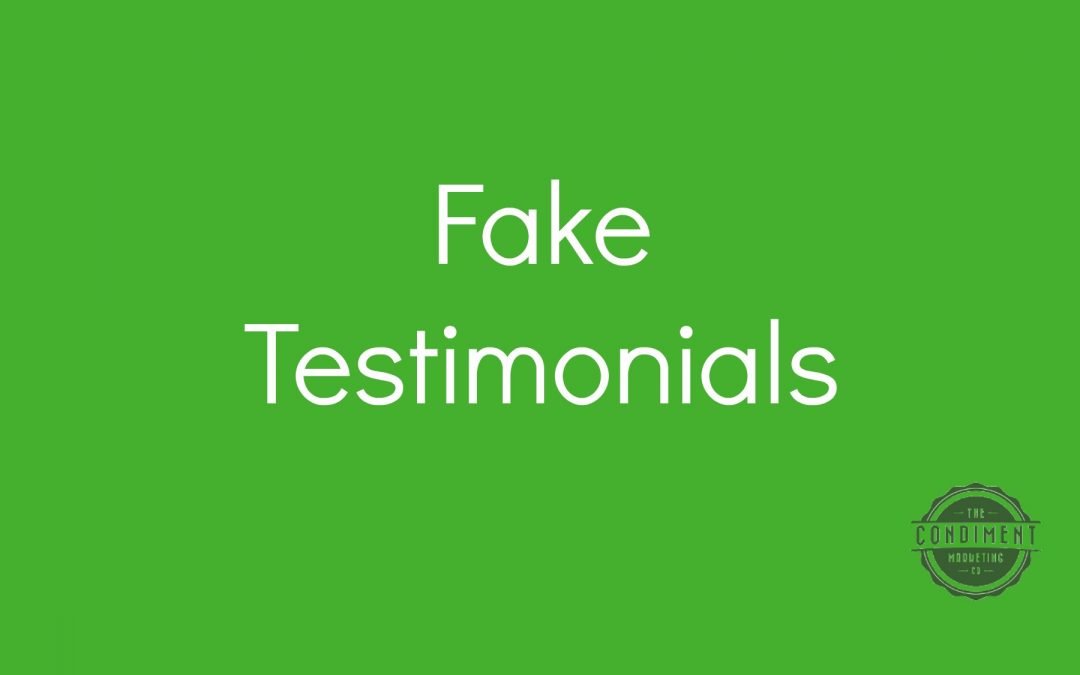If you are considering writing fake testimonials for your Web content or marketing materials, I have a small piece of advice for you. Don’t do it.
You might think that by adding pictures and names that the testimonials will look legitimate, but they won’t. A fake testimonial is easily spotted.
If you are a potential customer and read this exact testimonial on my site, would it convince you to hire me as your writer? I hope not.
Your Web site visitors aren’t dummies, so don’t treat them that way. With fake testimonials, you will not only lose the trust of the people you are trying to sell to, but you could find yourself in big trouble with the Federal Trade Commission. False advertising on the Web has become a serious issue, and depending on where in the world you operate your business, there could be repercussions.
The fear of a penalty shouldn’t stop you. Doing the ethical thing in your content development should motivate you to only publish true testimonials.
If you haven’t been in business long enough to collect testimonials, don’t fret. Testimonials will come in due time.






Thanks for the tip on the fake testimonial generator. I love it.
I’m also glad I discovered your blog. It rocks! I’d be lost without it! 🙂 I couldn’t resist.
But seriously, I’m subscribing the moment I finish writing this sentence. Great information here.
Thanks Dean. I really appreciate your note and enjoy your site too!